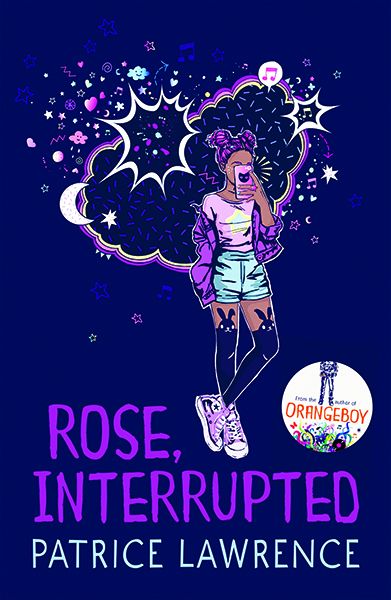I grew up in the age of the school TV room. Long before calling up your programmes on tap, we were at the mercy of the TV schedule. Primary schoolchildren across the land would wait with absolutely no anticipation at all while the TV trolley was rolled in so we could be educated by BBC school programmes. All these years later, only two programmes stick in my mind. One involved a Victorian boy with lockjaw. The other was the programme about the Caribbean.
I was born in Brighton to unmarried Caribbean parents who split up before I was born – actually, probably because I was going to be born. I always felt that I belonged and didn’t belong. My Italian stepdad had worked in 1970s English hotel kitchens so if you wanted a top-class prawn cocktail or profiterole our house was the place to be. My mum grew up in colonial Trinidad and quoted Shakespeare and Keats. She was a voracious reader and passed that on to me along with Wind in the Willows, The Water Babies and Pride and Prejudice. I had the food. I had the cultural reference points. I even had the accent. So why couldn’t I be English?
I was the only black child in the TV room and, for once, I was learning about something that was all mine.
The answer is because I had a rich Caribbean cultural heritage that was waiting for its moment to bubble up and reveal itself. I was part of a different but entwined history that wove its way through the white histories in my school books, invisible until someone held up a flame so I could see it. One of the first sparks of light was that BBC programme. I was the only black child in the TV room and, for once, I was learning about something that was all mine. That evening, I asked my mother about paime, filled cornmeal patties boiled in banana leaves, and Anansi, the original cunning spider-man. She was more than happy to fill me in. I think she even cooked paime, though naturally she had to use Bacofoil. Banana trees were curiously scarce in 1970s Sussex.
I first visited Trinidad when I was six. The occasion wasn’t happy – it was for a funeral. Oh, yes, there were culture shocks for me. Not least, the fact that my deceased grandfather was in an open coffin in the middle of my grandmother’s sitting room. I also hated the mosquitos and the outside long-drop toilets and the fact that most of my family couldn’t understand me. But – I had a family!
I met my seven aunties and three uncles and an infinite variety of cousins. (I also met my grandmother, but she was just plain terrifying.) It might be just me and my mum in England, but I was part of something so much bigger. We’d arrived in the dark and the next morning, I looked out on to my grandparents’ yard and gasped. The greens were so bright they made my eyes hurt. My cousin, Molly, pointed out the trees for me – coconut palms, paw paw, cashew, plum, oranges, avocados and mighty mango trees that could feed the whole village. My aunty Baby introduced me to my enduring love, the calypsonian Lord Kitchener, and I watched the young men down the street tune oil drums into steel pan.
My family are fantastic storytellers and perhaps that, along with my own hefty reading habit, made me a writer. I knew there were more stories than the ones I was reading in the mountain of books by the side of my bed. I wanted stories where children like me sat on their grandma’s porch while fireflies flickered around them. My first published children’s books were those stories. Granny Ting Ting and Wild Papa Wolf both draw on the Trinidad landscape and folk tales – Papa Bois, the old man who turns into a stag to guard his forests and the eerie duennes, ghostlike babies with no faces that entice living children away from their families.










